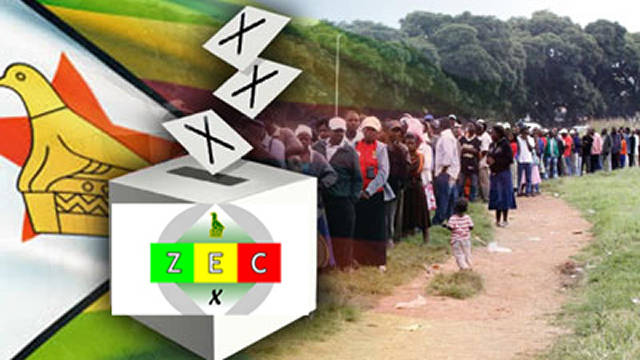
The Sunday News

Bongani Ngwenya
SOME of us are already imagining the potential for the transformation of Zimbabwe’s political economy beyond the 30 July national elections.
Whoever wins these elections, there are already positive signs that Zimbabwe is moving away from its previous regressive political economy to find its position in the global world. The argument is that it will certainly take more than the elections being free and fair to get the country’s economic fundamentals right. The country requires structural progression towards a complete transformation from the past political economy that has been characterised by structural regression coupled by lack of political will.
Literature and economic analysts mainly cite the following, among many factors as having been driving the structural economic regression of the country for the past 30 years; increasing dependence on primary commodities for export revenues generation, de-industrialisation and informalisation of the economy, dis-saving and depressed investment levels, infrastructural deficits and weak institutions, and weak budget, unsustainable expenditure mix, rising domestic debt and debt overhang.
The country has undergone such structural regressive trajectory since independence. With the economic structural adjustment programme adopted in 1991 in an attempt to embark on a structural progressive economic trajectory, only to be abandoned later due to lack of political will to forge ahead with the reforms.
The primary commodities primarily drove the export recovery from the hyperinflation era of 2008 mainly from the mining sector, as the industry had been rendered defunct by the economic meltdown.
While this phenomenon positively saw the growth of the mining sector with the expansion of platinum, diamonds and gold output, as the agricultural sector struggled to recover from both the hyperinflation economic meltdown and the agrarian land reform that was not implemented prudently.
During this period, gold production saw the gold prices surging up for the benefit of the mining sector. However, the fluctuation of the commodity prices on the international market coupled by changes in the demand for commodities, by countries such as China negatively impacted the consistence of the mining sector as the country’s export earnings and foreign currency generating sector.
Commodities prices are determined in the global market that is naturally controlled by the buyers leaving the sellers (exporters) such as Zimbabwe more vulnerable to erratic price fluctuations. This is the major structural regression challenge of over dependence on primary commodities exports. While primary commodities will continue contributing substantially to the export earnings of most of the developing countries, Zimbabwe included, into the foreseeable future, there is a need for the country to hedge itself from the primary commodities price fluctuation risk by re-industrialisation and formalisation of the economy.
Recovery from de-industrialisation and informalisation of the country’s economy has just been too pathetic.
Some of us feel much pained when we think about how some people both in the former Government and in the so-called captains of the industry were gloating and boasting about the emergence of the new economic trajectory in the country.
I remember attending some of the forums in the past where people were busy fooling themselves believing that by deliberately letting the industry die, there was going to emerge a new industry driven by new business models. The Government was commended for creating new businesses and companies to replace the dying ones. De-industrialisation and informalisation of the economy continued unabated, now leaving the Government that will emerge from the 30 July national elections with a heavy burden to turn the direction of the economy towards structural progression, which will include heavy investment on the re-industrialisation and formalisation of the economy of the country.
Because of persistent de-industrialisation and decline, the economy has increasingly informalised, rendering the majority of the informal economy workers now at the bottom of the socio-economic ladder, working under precarious conditions trying to make ends meet, as they suffer from a deficit of decent work, with their work being casual, unprotected, excluded, unregistered or unrepresented as labour unionisation or organisation continues to become irrelevant.
Structural regression also saw the country undergoing dis-saving and depressed investment levels of alarming proportions.
While savings and investments are a critical component of economic growth, in Zimbabwe this has been neglected to the state of decline far below the regional member states. Both domestic and foreign direct investment have remained seriously depressed.
The Government, post elections, has a mammoth task of reversing this structural regression by seriously working towards boosting and improving both, the domestic and foreign investment levels in the economy.
The goodwill that has been generated so far from the demise of the past political economy would be a stepping-stone for the incoming Government to leverage it for the betterment of the economic transformation as the country moves in the direction of structural progression.
The past political economy’s environment has been seriously deterrent to foreign direct investment in particular, with the indigenisation and economic empowerment policy lack of clarity and insistencies contributing the most to the country’s perceived investment risk by the international community.
The incoming Government has a duty to remove all the structural regression impediments to really open for business transformation. The African Development Bank for example in 2011 raised alarm about the state of the country’s basic infrastructure for power, transport, water and sanitation, and information and communications technology sectors.
The sustained deterioration of the basic infrastructure has been attributable to inadequate levels of public expenditures for routine and periodic maintenance of the infrastructure networks, which ironically falls under the jurisdiction and responsibility of some state enterprises.
This calls upon the wisdom of the Government to seriously consider reforming the state enterprises. The deterioration in the physical infrastructure is exacerbated by failure to build institutional capacities for management and regulation of the basic network services by the former Government.
The problems reflected are a cause of the disjointed approach to regulation and oversight among the various ministries. A weak budget that has recurrently run on deficits is another structural regression factor that would need to be addressed, including domestic and foreign debt overhung. In conclusion, the country requires progressive structural transformation for it to overcome the perennial economic woes and move towards sustainable economic growth.
Dr Bongani Ngwenya is based at the University of KwaZulu-Natal as a Post-doctoral Research Fellow and can be contacted on [email protected]




